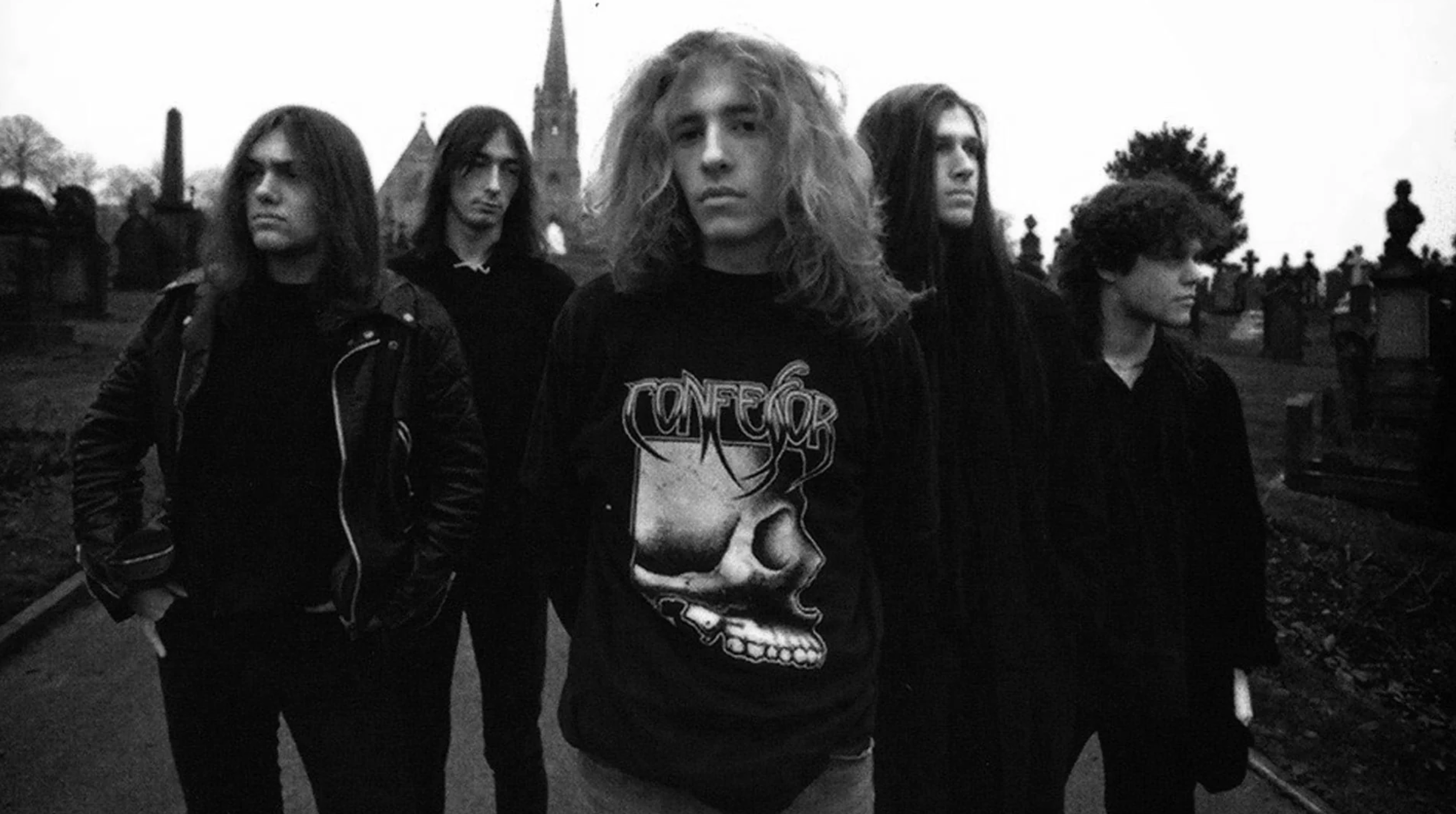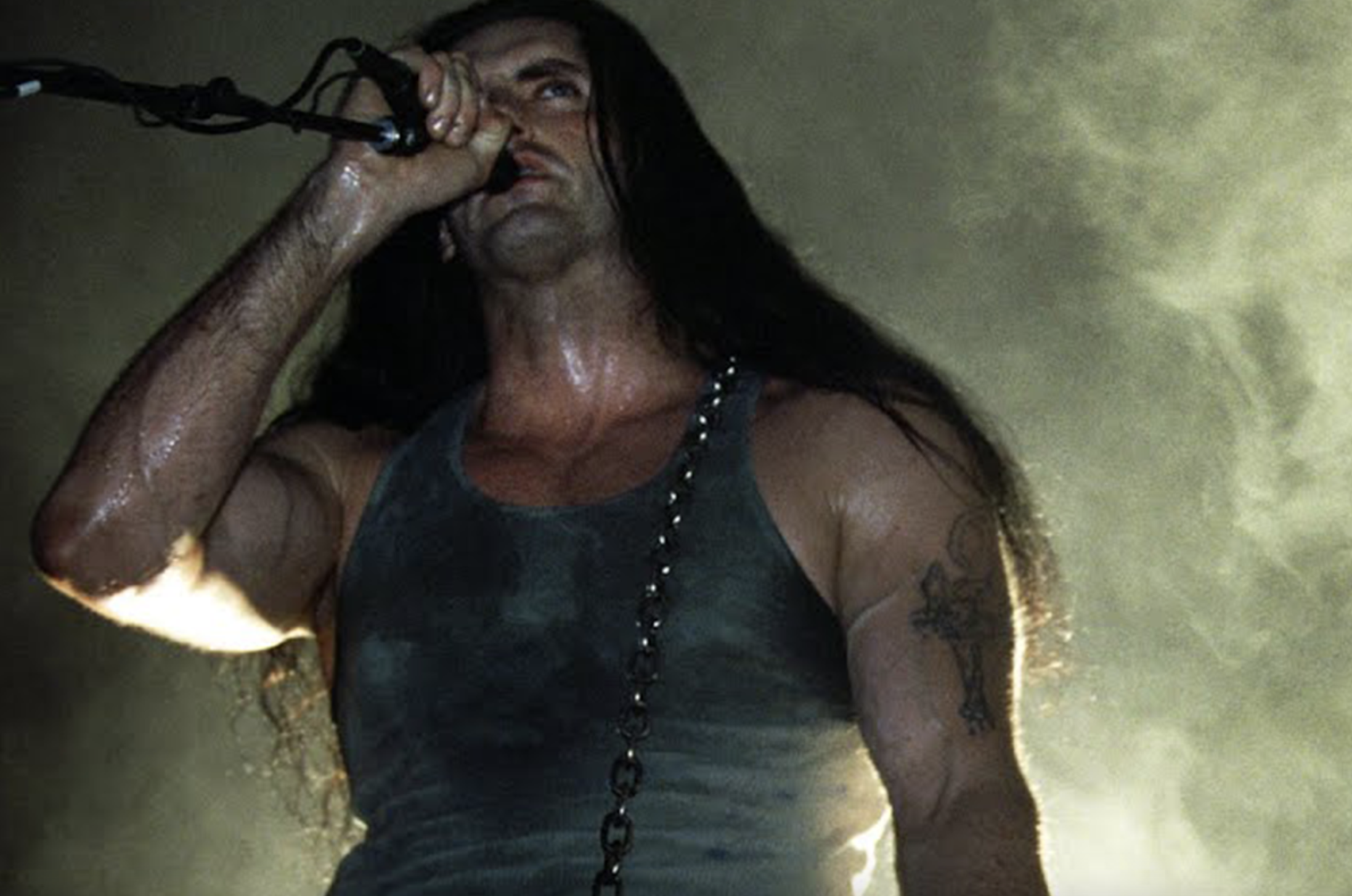The Banshees and Gargoyles of Gothic Metal
Metal and gothic culture are natural peers. They're both extreme subculture fostering an intimate relationship to negative emotions, trauma and death that people deemed "normal" are trying to avoid. Sometimes the line is blurred between both. For example: Ozzy Osbourne isn't goth, but he would totally be welcomed at a goth party for what he signifies and also for his devouring feeling for bats. But their kinship is essentially aesthetic and not musical. Except in the very real cases where both overlap.
Gothic music has its root in rock and new wave. Atmosphere is what matters most to goths and metal isn't the first genre we think of when atmospheric music is mentioned. There are highly atmospheric metal bands, but they have to think outside the box a little bit in order to get the desired effect. All out brutality is great, but it's a quite specific and rigid mood. It's not every band who's able to scale back and incorporate "impure elements" to their brand of metal. It requires a specific kind of temperament.
So, this is the story of how two extremely compatible culture collided in order to create a unique and highly idiosyncratic sound that doesn’t mesh all that well with other metal genres except perhaps doom metal. Gothic metal is kind of its own thing, with its own crowd aesthetic, but it doesn't mean it can’t be a mood, right? So, let me tell you how it all started.
There were the post-punk guys and then there were the other post-punk guys
When you think about goth culture, the first bands that come to mind are The Cure, Joy Division, Siouxie and the Banshees, Bauhaus, etc. A morbid, melancholic, but accessible and (more important) danceable rock that appealed to goth kids and simply depressed people alike. But these bands were not the alpha and omega of goth culture. Other bands adopted influences from the other great underground culture that was blowing up at the time and the gothest band in that culture: Black Sabbath!
The leading band hybridizing post-punk, rock and metal was Fields of the Nephilim from the UK. As you’ll notice further along, gothic metal is not exclusively a British thing… but it is quite British. Fields of the Nephilim is a conceptual band that sings about post-apocalyptic fantasy stuff with symbolic sensibilities that included distorted guitars, gloomy atmospheres, violent imagery and grimy production.
There were some raspy, grow-like vocals thrown in there too.
Californian band Christian Death is the other major band to incorporate metal influences in their sound. Their thing was more dissonant riffs, downtuned guitars nd anti-christian lyrics. Sisters of Mercy also included rock and metal influences albeit more subtly. They were heavier than bands like The Cure of Siouxie. None of these bands I mentioned were goth metal to properly speak of. They were bona fide post-punk and gothic rock, but they laid the blueprint for what gothic metal would sounds like.
The Peaceville Three and the birth of Gothic Metal
The great majority of metal genres don't have a clear inception point and evolved somewhat organically into what they became (death metal is a great example of that), but gothic metal definitely does. It's when Paradise Lost decided to call their record of an up-to-this-point unlabeled genre Gothic. There are technically three originators to gothic metal often referred to as The Peaceville Three, but Paradise Lost named it the first. The other two bands being My Dying Bride and the lesser know Anathema.
Once again, it was a British thing at first.
Paradise Lost were first in 1988. Their sound wasn’t gothic metal at first. It leaned more towards a slower, more melancholic iteration of death metal. That mournful British soul seeped even more into their second album which lowed down tempos even more and incorporated hint of melodies, longer instrumental sections. Further albums Shades of God and Icon incorporated other instruments (like piano), clean vocals and a more rock structure to their songs in order to usher in the proper goth metal song.
I was fortunate enough to discuss the origins of My Dying Bride with founding member Andrew Craighan and he told me something similar: they were originally inspired by Carcass and Bolt Thrower because they were the extreme bands around at the time. It’s frontman Andrew Stainthorpe’s interest in classic and victorian literature and the band's overall direction gearing towards fantasy and escapism that forged their more folkloric and uncompromising sound starting with Turn Loose the Swans in 1992.
Anathema formed a little later in 1990 and always veered towards a more progressive rock side. It's as elegiac as the others, but in a less bombastic way. I know them less, so I’m not going to introduce their characeristics, but point is all three got signed with British label Peaceville records and became flag bearers of this new sound: slower tempos, elegiac atmospheres, alternance between heaviness and melody, romantic imagery, this is the original gothic metal, but it went in a couple directions from there.
Type O Negative and the Goths Around the World
On the other side of the ocean (around the same years), the gigantic son of Polish immigrants broke up his up-and-coming crossover thrash band Carnivore looking to figure out a sound her could relate to more. He was inspired by the melodies of The Beatles and the heaviness of Black Sabbath. Type O Negative didn't transition from death/doom like Paradise Lost or My Dying Bride, but it was somehow heavier. Their music was mournful, romantic (sometimes outwardly sexual) and most definitely tongue-in-cheek.
The charisma and originality of Peter Steele turned Type O Negative into somewhat of a minor cultural phenomenon, but they were also inimitable. His baritone voice had a depth to it that wasn't easy to replicate and the slow, sluggish pace of their songs were their own. If anyone tried to incorporate elements of it, they would’ve been perceived as copycats. So, Type O Negative’s influence on gothic metal is cultural more than it is musical. No bands will ever sound like them, but they were important.
Portugese band Moonspell also had its role to play in the development of the scene. Formed in 1992 and lead by ultra charismatic frontman Fernando Ribeiro, they played a dark and abrasive spin off the sound. I would consider them marginally important in the history of gothic metal. Italy’s Lacuna Coil were one of the first band in the genre to have a woman fronting them. Cristina Scabbia was essential to building up the romantic imaginary of the genre, but she could also sing like hell.
Sweden's Katatonia started as a death/doom band like Paradise Lost and My Dying Bride did and transitions into a more gothic sound starting with their EP Saw You Drown in 1997. They have become one of the most electric and important bands with the genre. They’ve detached themselves from the romantic, victorian imaginary of their British influences and embraced more contemporary ideas. They sure are one of my favorite gothic metal bands working today and flag bearer of the genre.
Katatonia incorporates subtle shoegaze elements to their music that makes it feel heavy with torment and obsession.
I guess HIM deserves mention here too as he carried a more unflinching idea of what gothic metal should be, but he could also be considered hard rock. Ville Valo has a very catchy, very unapologetically pop spin off the sound. I don’t consider him to be very metal (and I do find his imaginary to be corny as hell sometimes) , but he deserves recognition as one of the most successful goth musiciens of all-time and a great representative for guitar-heavy music in general. He’s got a few infectious stompers.
Gothic Metal in the Twenty-First Century
The elephant in the room is Evanescence, right?
Swept into the spotlight by the freight train of nü metal in 2003 (which did them both good and bad), they had an alternative rock sensibility and creative leader Amy Lee played the inconsolable, broken up loner to perfection. Even if she was legendarily not fond of adding a rap verse to their iconic single Bring Me to Life, she’s never shied away from their great cultural moment. She makes it work live without corny rappers even today. But even if Bring Me to Life is their biggest success, it's not Evanescence's best song.
See, Evanescence are more goth than gothic metal. They have great power ballads where Amy Lee uses piano or synth in order emphasize vulnerability and brokenness, which really shines on a song like Imaginary, which adresses mental health issues.
There are other newer gothic metal bands or rather gothic-adjacent metal bands like Within Temptations, Lake of Tears, Tiamat, Sirenia, Lacrimosa and a few others, but it hasn't aged as well as other genres. The internet has turned gothic culture as a whole as somewhat of a joke. It's deemed too hystronic and needlessly violent for normies. Goths are seen as cosplayers more than ever unless they take a more sober visual approach like, let’s say Katatonia or Goth-friendlies Deafheaven would.
All of the major bands working today still have been mentioned in this article. Rotting Christ should be mentioned also. Historically a black metal band, their last releases have been gothic metal since the turn of millennium and for the best, I might. They are better goths and basement weirdos.
Here are 5 songs to help you better understand the evolution of gothic metal anyway.
Christian Death - Church of No Return : A more abrasive and provocative spin off post-punk. Somewhat more abstract too. This is not yet gothic metal, but it was rebelling against reality in a way the genre eventually would come to.
Paradise Lost - Enchantment : What a ridiculous banger, right? I chose this song because it's one of the most polished and catchy gothic metal song ever recorded, but it still packs a punch. Paradise Lost’s singer Nick Holmes is showing off some range and command in that song.
Type O Negative - Christian Woman : Overly heavy, downtuned and excruciatingly sexual. What's not to love here? Type O Negative reasserted the strong ties between doom and gothic metal and often surfed the line between both genres. No band ever dared showing sincere influences from them, though.
Katatonia - My Twin : Another band that play by their own rules. Often called depressive rock because of their lack of resemblance to other gothic metal artists, I still think they carry the post-punk roots of the movement much better than most and mesh better with the era with their downplayed looks.
Poisonblack - Rush : As I’m sure you've noticed, modern(ish) gothic metal sounds more or less like the classic one. Not a great fan of what’s going on right now, but it's a good example of how there's really no one outside of Katatonia to bring the genre forward.
* Follow me on Instagram to keep up with new posts *










